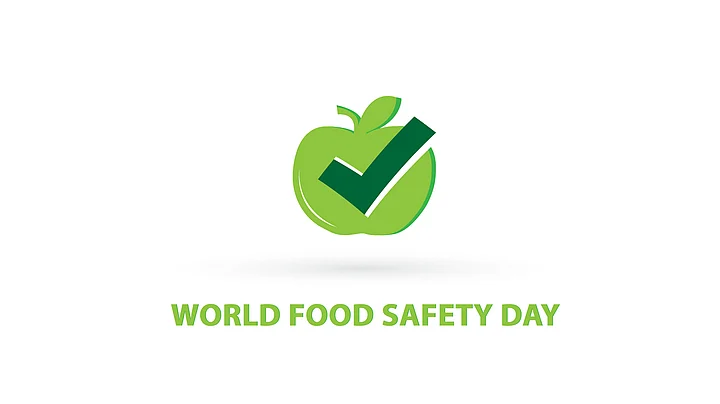World Food Safety Day 2024: Every year on 7 June, the world celebrates Food Safety Day (WFSD). The United Nations established this day to highlight the necessity of preventing, detecting, and managing foodborne issues in order to ensure food safety for all. World Food Safety Day is observed jointly by the World Health Organization (WHO) and the Food and Agriculture Organization of the United Nations (FAO), with the support of Member States and other relevant organizations. WFSD is observed under a specific theme annually. This year, the theme of World Food Safety Day 2024 is 'Food Safety: Prepare for the Unexpected'.
WFSD presents an opportunity to intensify efforts aimed at ensuring the safety of the food consumed by humans. Food safety is a human right, and everyone has the right to consume safe and nutritious food. Celebrating this day offers a reminder to the need for effective food safety measures to prevent food borne illness. Let us read about some myths and facts about food safety below.
World Food Safety Day 2024: Myths and Facts About Food Safety
According to WHO, following are some of the myths and facts about food safety.
Myth: Smell of Food Helps in Knowing the Safety of Food
Fact: It is difficult to know whether a food is safe to eat or not by its smell. Most disease causing microorganisms don't alter the smell of food.
Myth: Appearance of Food Helps in Knowing the Safety of Food
Fact: The change in the appearance or shape of food doesn't help in determining the quality of food. Disease spreading microorganisms do not change the shape of food.
Myth: Dropped Food is Safe to Eat
Many people believe that if food is dropped on floor, it is safe to eat, if consumed immediately. However, people should avoid eating dropped food in all circumstances because it is instantly contaminated by disease causing microorganisms.
World Food Safety Day activities include raising awareness about the potential risks associated with contaminated food and the importance of implementing effective food safety measures to avoid illness. The day also offers a chance to reflect on the problems confronted in ensuring food safety for all, including the lack of access to safe food, poverty, and conflict.
Myth: Raw Poultry Should be Washed Before Cooking to Avoid Contamination
Fact: It is recommended to avoid washing raw poultry before cooking because doing so will spread the harmful microorganisms to hands, utensils, and other foods.
Myth: Thaw Frozen Foods at Room Temperature
Fact: It is recommended to thaw frozen foods in the cold water or refrigerator because thawing foods at room temperature makes them prone to contamination by diseases causing microorganisms.
Myth: It is Okay Not to Refrigerate Leftover Food
Fact: Leftover food should be always refrigerated. Keeping it outside makes it unsafe for consumption.
Myth: Organic Foods Don't Need to be Washed
Fact: All foods including organic should be properly washed before consumption to remove contaminants, chemicals, and microorganisms.
Myth: You Can't Get Sick With Food That You Ate Before Few Days
Fact: Some microorganisms take longer than usual to spread disease. Therefore, it is highly possible that you can get sick from contaminated food that you consumed few days ago.
(Disclaimer: Parts of this article were generated by AI and published after the content was editorially modified and verified by a human based on their own judgement and expertise. The Quint does not publish AI-generated content without direct human involvement and oversight).
(At The Quint, we question everything. Play an active role in shaping our journalism by becoming a member today.)
